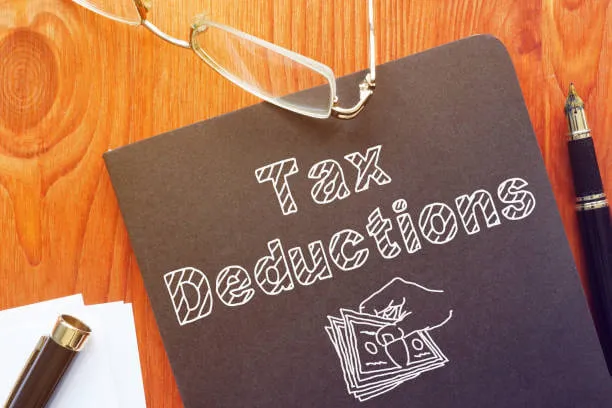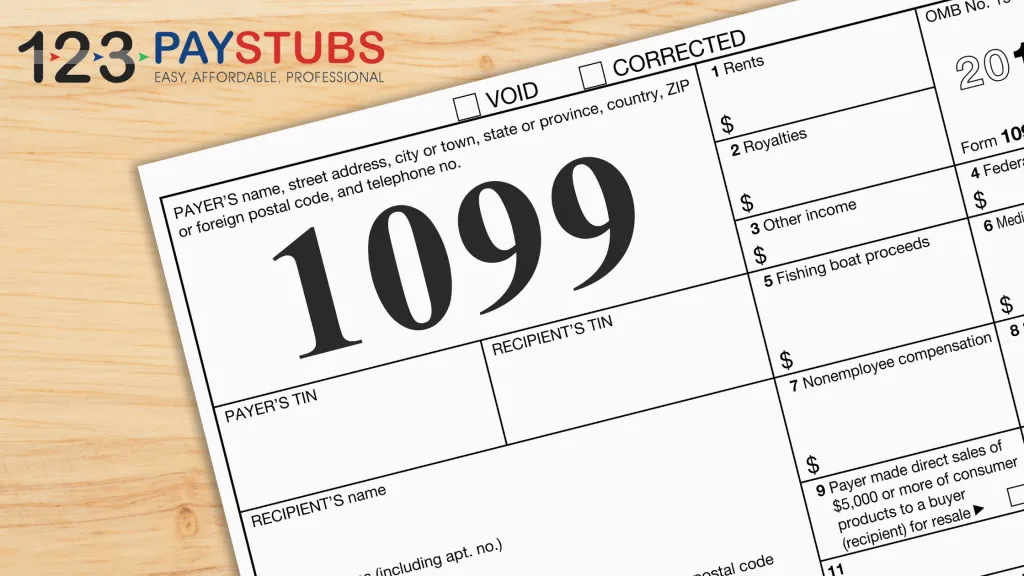If you're a freelancer, especially one using platforms like Fiverr, understanding your tax obligations can be a bit of a maze. You might find yourself asking questions like, "Will I receive a 1099 NEC or is it a 1040?" Navigating these tax forms is essential for compliance and ensuring you handle your finances properly. In this guide, we’ll break down the essentials to help you clarify what taxes you need to be aware of when working through Fiverr.
What is Fiverr?

Fiverr is a widely recognized online marketplace that connects freelancers with clients looking for various services. Launched in 2010, it has transformed the way people offer and hire freelance work. Whether you’re a graphic designer, a writer, a programmer, or even a voice-over artist, Fiverr allows you to showcase your portfolio and sell your skills to a global audience.
Here are some key features of Fiverr:
- Service Gigs: Freelancers create "gigs," which are specific services offered at various price points starting as low as $5.
- Diverse Categories: Services range from digital marketing and video editing to music production and programming.
- Flexible Pricing: Freelancers can set their own prices, offering options for basic, standard, and premium service tiers.
- Client Ratings: After a project is complete, clients can leave reviews, which helps build credibility for freelancers.
Fiverr provides not just a platform for freelancers to market their skills, but also a space for clients to find the right talent quickly and easily. Its user-friendly interface and numerous offerings have made it a go-to resource for both freelancers and businesses alike.
Also Read This: How to Set Up My Fiverr Profile
The Importance of Understanding Tax Forms

When it comes to freelancing and working on platforms like Fiverr, understanding tax forms isn't just a boring part of adulting; it's crucial for your financial health! Imagine this: you’ve worked hard, earned some cash, and suddenly, tax season rolls around. If you're not fully aware of how these forms contribute to your tax responsibilities, you might find yourself in a bit of a pickle.
First, let’s clarify why tax forms matter:
- Clarity on Income: Knowing which forms you need helps you accurately report your earnings. This is super important because the IRS expects you to disclose all your income, and any discrepancies could lead to audits or penalties.
- Deductions and Credits: Understanding different forms can also make you aware of potential deductions and credits. For instance, if you're a freelancer, certain expenses related to your business might be deductible, reducing your overall taxable income.
- Legal Compliance: Filing your taxes correctly means you're adhering to legal obligations. Ignoring tax forms can lead to consequences, and nobody likes unwanted visits or letters from the IRS!
- Better Financial Planning: Grasping the implications of tax forms allows you to plan ahead. Knowing what you owe can help you set aside money throughout the year instead of scrambling at the last minute.
In summary, understanding tax forms is like having a roadmap for your freelancing journey. It keeps you informed and prepared, ensuring that when tax season comes knocking, you’re ready to open the door with confidence.
Also Read This: When Does Fiverr Take Place?
What is Form 1099 NEC?

If you're a freelancer earning money from clients through platforms like Fiverr, you've probably heard about Form 1099 NEC. This form plays a pivotal role in reporting the income you earn from your freelance gigs. But what exactly is it?
The 1099 NEC, which stands for Non-Employee Compensation, is used to report payments made to non-employees. Here’s the lowdown:
- Who Uses It: This form is generally issued by businesses or individuals who pay freelancers $600 or more during the tax year for services rendered.
- What It Reports: It includes amounts you earned for freelance work, ensuring that both you and the IRS are aware of your earnings. It's essential to note that these earnings are considered self-employment income.
- Filing Deadline: The form must be sent to the recipient (that's you!) by January 31 of the following tax year, which gives you a heads-up about what to expect when you file your taxes.
- Why It Matters: Receiving a 1099 NEC means you need to report that income on your tax return. Ignoring it could lead to overestimating your deductions or underreporting your income, both of which have consequences.
In a nutshell, Form 1099 NEC is your official documentation of freelance income and is essential for keeping your tax records accurate. So, when you see that form come in, don’t just toss it aside—use it to give you a clearer picture of your financial landscape!
Also Read This: How to Send Money from Fiverr to PayPal
What is Form 1040?
Form 1040 is the standard federal income tax form used by individual taxpayers in the United States to report their annual income. Unlike other specific tax forms, it encompasses various types of income, deductions, and credits that could apply. Whether you're a freelancer hustling on platforms like Fiverr or a traditional employee, you may need to submit Form 1040 to the Internal Revenue Service (IRS) every year.
The form allows taxpayers to detail their income sources, which can include wages from a job, dividends from investments, and indeed, earnings from freelance gigs. Essentially, it’s your comprehensive ticket to letting the IRS know how much you made last year and what you think you should pay in taxes.
Here’s a brief breakdown of the major components of Form 1040:
- Personal Information: Your name, address, and Social Security number.
- Filing Status: Indicate whether you are single, married filing jointly, married filing separately, head of household, or qualifying widow(er).
- Income Section: Here, you’ll report all of your income, including wages, salaries, tips, and freelancer earnings.
- Deductions: Standard or itemized deductions can lower your taxable income and ultimately your tax bill.
- Tax Credits: Optional credits that can also reduce your tax liability.
Remember, if you’ve earned money on Fiverr, you need to report those earnings on this form. It is your responsibility to maintain accurate records of your income, expenses, and any deductions you wish to claim, so keep those invoices and receipts handy!
Also Read This: How Much Does Fiverr Take in 2024?
Understanding Your Earnings on Fiverr
When it comes to freelance work on Fiverr, understanding your earnings is crucial, not just for financial planning, but also for tax purposes. As a freelancer, your earnings are treated differently than typical wages, and it's essential to get a grasp on the ins and outs of your income.
On Fiverr, you can set your own prices and offer a variety of services, ranging from graphic design to writing and everything in between. However, as you earn money, there are a few factors to keep in mind:
- Gross Earnings: This is the total amount income you earn from Fiverr before any deductions. For example, if you sell a service for $100, that $100 is considered your gross income.
- Fiverr Fees: Fiverr takes a percentage from each transaction, typically around 20%. This means if you earn $100, Fiverr will take $20, leaving you with $80 as your net earnings.
- Expenses: As a freelancer, you might incur costs related to your Fiverr services—such as software subscriptions, marketing, or office supplies. These expenses can often be deducted from your gross earnings when calculating your taxable income.
It’s important to maintain clear records of these figures, not only for organization but also for your taxes. The IRS requires you to report all income earned, so you'll want to keep a close eye on how much you're bringing in from Fiverr.
Here’s a simple table to visualize how it all breaks down:
| Item | Amount |
|---|---|
| Gross Earnings | $100 |
| Fiverr Fee (20%) | -$20 |
| Your Net Earnings | $80 |
By grasping these concepts, you'll be better prepared to manage your finances and fulfill your tax obligations when it comes time to file!
Also Read This: Can Companies Offer Services on Fiverr?
When Should You Expect a 1099 NEC from Fiverr?
If you're a freelancer earning money through Fiverr, it’s essential to understand when you should expect to receive a 1099 NEC form, which is crucial for your tax reporting duties. Fiverr, like many platforms, is required by the IRS to issue this form if your earnings meet certain thresholds.
Typically, you can expect a 1099 NEC from Fiverr if you earn more than $600 in a calendar year. This is the standard threshold across many freelance and gig economy platforms.
Here’s a quick breakdown:
- Threshold: Earn $600 or more in a year on Fiverr.
- Timeframe: The forms are generally sent out by January 31st of the following tax year.
- Delivery Method: You may receive it both electronically through your Fiverr account and by mail, so keep an eye out for it!
It’s important to note that even if you don’t receive a 1099 NEC, you are still obligated to report your income. The IRS requires you to report all your earnings, regardless of whether you receive a 1099 form. So, if you made money on Fiverr, it’s best to keep good records and report every last cent on your tax return!
Also Read This: How to Find Jobs on Fiverr
How Fiverr Earnings Impact Your 1040 Tax Return
When it comes to filing your annual tax return using Form 1040, your Fiverr earnings can significantly impact the amount you owe or the refund you may receive. As a freelancer, you report your income differently than traditional employees.
Here’s how to navigate this process:
- Self-Employment Income: Earnings from Fiverr are classified as self-employment income. You need to report this on Schedule C of your tax return.
- Deductions: Remember, as a freelancer, you can deduct various business expenses, like software subscriptions, advertising costs, and home office expenses. These deductions reduce your taxable income.
- Semi-Annual Payments: If you expect to owe more than $1,000 in taxes for the year, you may need to make estimated tax payments throughout the year.
Ultimately, how well you manage your Fiverr earnings on your Form 1040 will affect your overall tax liability. Keeping track of your income and expenses will not only help you file accurately but may also lead to potential savings. Keeping organized records throughout the year will save you headaches come tax time!
Also Read This: Getting Started as a Freelance Filmmaker
Common Mistakes to Avoid When Filing Taxes for Fiverr Income
Filing taxes can be daunting, especially for freelancers using platforms like Fiverr. To help you navigate the tax season smoothly, here are some common mistakes to steer clear of:
- Not Tracking Income: One of the biggest blunders is failing to keep a detailed record of all your earnings. Every gig counts, so make sure you document each payment you receive.
- Neglecting Expenses: Remember, as a freelancer, you can deduct business-related expenses. Failing to track and claim these can lead to paying more tax than necessary!
- Missing Deadlines: Not being aware of tax deadlines can lead to penalties. Keep a calendar with important tax dates so you’re never caught off guard.
- Ignoring 1099 Forms: If you earn over $600 on Fiverr in a year, you should receive a 1099-NEC form. Don’t ignore it; you’ll need it for accurate tax filing.
- Filing Incorrectly: Make sure to use the right form! Just because you’re a freelancer doesn’t mean you fill out the 1040 like everyone else. Understand if you are filing under 1099-NEC.
- Not Consulting a Professional: If your income is substantial, don't hesitate to talk to a tax professional. They can help you avoid pitfalls and maximize your deductions.
Being informed about these mistakes can save you a lot of trouble during tax time!
Also Read This: What You Need to Start on Fiverr
Tips for Managing Your Taxes as a Freelancer
Managing taxes as a freelancer comes with its own set of challenges, but with the right strategies, it can become a less daunting task. Here are some useful tips:
- Keep Accurate Records: Invest in accounting software or apps to track your income and expenses throughout the year. This can save you hours come tax season!
- Set Aside Money for Taxes: As a freelancer, you’re responsible for your own taxes. It’s wise to set aside around 25-30% of each paycheck to cover your tax bill.
- Understand Quarterly Payments: If you're earning a good amount, you may have to make estimated tax payments quarterly. Familiarize yourself with this process to avoid penalties.
- Educate Yourself: Stay updated on tax laws and regulations affecting freelancers. Online resources and courses can be beneficial.
- Organize Your Receipts: Use digital tools to categorize and store receipts to make sure you don’t miss out on valid deductions.
- Seek Professional Help: As mentioned earlier, if your finances become complicated, hiring a CPA who specializes in freelance taxes can be an excellent investment.
By being proactive and organized, managing your taxes can be a smooth experience!
Is Fiverr 1099 NEC or 1040? Understanding Your Tax Obligations as a Freelancer
As a freelancer using platforms like Fiverr, it's crucial to understand your tax obligations and forms you might encounter during tax season. One common question is whether earnings from Fiverr are reported on a 1099 NEC or 1040 form. The distinction between these forms is essential for proper tax reporting.
Freelancers, including those on Fiverr, typically receive a *Form 1099 NEC if they earn $600 or more in a calendar year. This form is specifically used to report non-employee compensation, which means money paid to an independent contractor for services rendered. Below are key points regarding the 1099 NEC and your obligations:
- Threshold: Earnings exceeding $600 will require a 1099 NEC form from Fiverr.
- Income Reporting: All income, regardless of the 1099 NEC form, must be reported on your tax return, typically using Form 1040.
- Self-Employment Tax: Freelancers must pay self-employment taxes on their net income.
- Deductions: As a freelancer, you're entitled to various deductions which can lower your taxable income.
When filling out your tax forms, income shown on your 1099 NEC should be included in the Schedule C* of your Form 1040. This helps calculate your net profit or loss from your business activities, and also informs the IRS of your freelance earnings.
In summary, as a Fiverr freelancer, you'll likely receive a 1099 NEC reporting your earnings, which then must be included in your overall income reported in Form 1040. Properly understanding and fulfilling these obligations is key to staying compliant with tax laws.
Conclusion: Understanding the tax implications of freelance work on Fiverr is essential. By recognizing the role of both the 1099 NEC form and your Form 1040 in reporting income, you can navigate your tax responsibilities with confidence.



